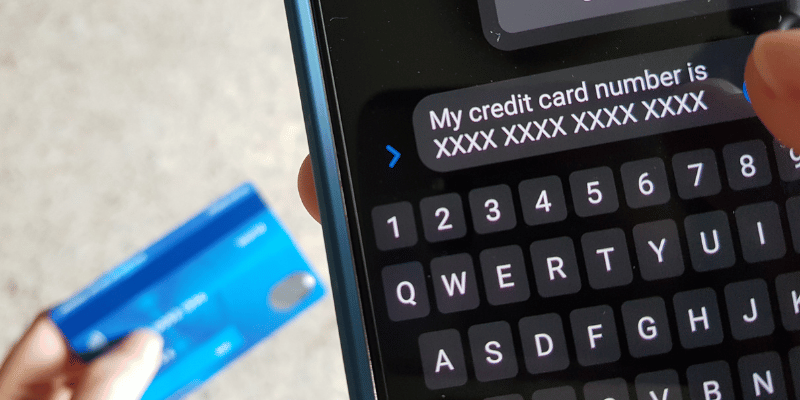
In the world of cryptocurrencies, the rise of impersonation scams has become a significant threat. These scams, where fraudsters masquerade as trustworthy entities, aim to deceive individuals into parting with their digital assets or personal information. Understanding the nature of these scams is crucial for anyone navigating the crypto space.
The Mechanics of Deception
Impersonation scams in crypto are sophisticated and multifaceted. Scammers often create fake online personas, imitating celebrities, influencers, or reputable crypto platforms. They use these identities to interact with potential victims, building trust through convincing language and counterfeit credentials. The endgame? To coax you into sending cryptocurrencies or divulging sensitive information. Once they have what they want, these digital thieves vanish, leaving you with a lighter wallet and a heavy heart.
Common Types of Impersonation Scams
Phishing Emails and Websites
A common tactic involves phishing, where scammers send emails or create websites that mimic legitimate crypto services. These platforms are designed to steal sensitive information like private keys or login credentials.
Fake Social Media Profiles
Scammers often create counterfeit social media accounts, imitating influential figures in the crypto world. These profiles appear strikingly similar to the real ones, making it challenging for users to distinguish between authenticity and deceit.
Telegram and Discord Scams
Crypto communities on platforms like Telegram and Discord are not immune to impersonation. Here, scammers set up fake channels, luring users with fraudulent investment opportunities or airdrops.
Fake Wallets and Apps
The creation of bogus crypto wallet apps is a direct approach to scamming. Users download these apps, mistaking them for legitimate ones, and end up compromising their funds.
Customer Support Impersonation
Impersonating customer support personnel from well-known crypto exchanges or wallet services is a sophisticated scamming method. These fraudsters aim to gain access to users’ accounts and assets.
Ponzi Schemes and Investment Clubs
Ponzi schemes and fraudulent investment clubs promise high returns with little risk, a classic red flag. These schemes often collapse, leaving investors with significant losses.
Never give out personal data!
Recognizing Crypto Impersonators
Grammar and Spelling Mistakes
Professional entities maintain a high standard of communication. Frequent grammatical or spelling errors in communications can be a telltale sign of a scam.
Too-Good-To-Be-True Offers
Offers that seem overly lucrative should be approached with skepticism. In the crypto world, high returns always come with corresponding risks.
Check the Domain
Paying close attention to the domain name in emails and websites can help identify phishing attempts. Scammers often use domains that closely resemble legitimate ones.
Request for Personal Information
Legitimate crypto services rarely ask for sensitive information via email or direct messages. Any such request should be treated with utmost caution.
A Special Note for Mountain Wolf Customers
As we delve into the complexities of impersonation scams in the crypto world, it’s crucial for Mountain Wolf customers to exercise heightened vigilance. It’s imperative to ensure that you’re interacting with our official social media channels. These can be reliably found in the footer of our homepage or within our newsletters. This is especially important when it comes to platforms like Telegram, where the risk of encountering fraudulent channels is notably higher. Pay attention – we never write to our customers via our social media channels using direct messages or similar!
At Mountain Wolf, we prioritize the security and privacy of our customers. It’s important to remember that we will never ask for sensitive personal data or private keys. Unlike many deceptive schemes floating in the digital space, Mountain Wolf does not offer investment plans that promise high returns. Such offers, often too good to be true, are red flags indicating potential scams.
For an added layer of security, we strongly recommend that all our customers enable Two-Factor Authentication (2FA) in their Mountain Wolf accounts. This simple yet effective measure can significantly enhance the security of your account, safeguarding it against unauthorized access and potential impersonation scams.
By staying informed and cautious, especially in regards to communication channels and offers that seem out of the ordinary, you can help protect not only your assets but also your personal information. Remember, staying safe in the digital world is a shared responsibility, and at Mountain Wolf, we’re committed to doing our part in ensuring a secure experience for all our customers.
More insights
Video: Mountain Wolf Travel Club – Travel with crypto, get cashback
Hello, friends! I'm Monty, and today I'm taking you on an exciting journey with the Mountain Wolf Travel...
What is Regenerative Finance (ReFi)?
Regenerative Finance, or ReFi, represents a new paradigm in the financial world, blending the innovative...
Video: How do I connect my Virtual Crypto Card with Google Wallet? – Mountain Wolf
Here I show you how to connect your Virtual Crypto Card with Google Wallet. Open the Google Wallet app on...




